From choosing the right seat to having the correct posture, there are a number of ways you can enjoy better sleep without needing to take sleeping pills. While Aussies love visiting other countries and cultures, sadly our isolation from the rest of the world means we often face having to endure long-haul flights. Flying isn’t always the most relaxing period of travel, and enjoying quality sleep on a long-haul flight can often seem futile. According to a recent study by The Sleep Judge which surveyed roughly 1,000 people, 43% of flyers reported less than average sleep quality and 18% reported very poor sleep quality. Thankfully, there are other ways in which you can increase your chances of finding better sleep on your next flight. 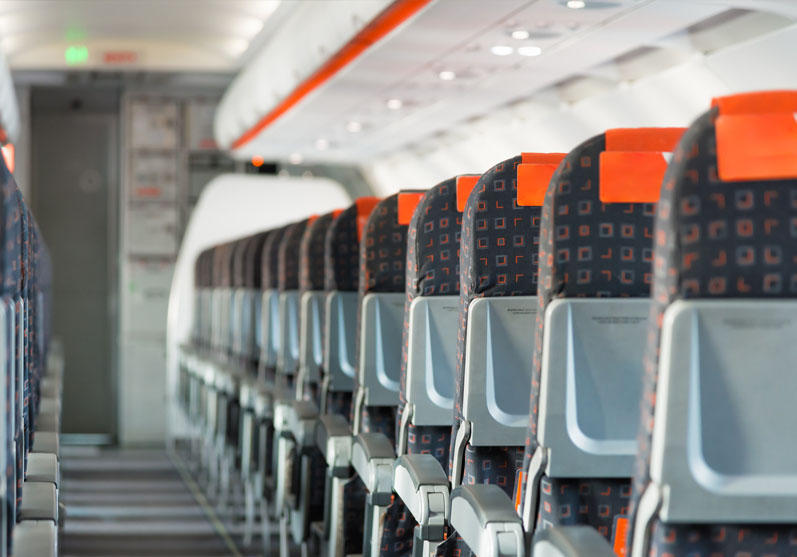
Best plane seats for getting quality sleep
Most travellers blame uncomfortable seats as the number one reason for poor sleep quality while flying. While booking a business or first-class ticket can score you a seat that lays down flat and gives you a much better chance of falling asleep, this is often not an option for travellers needing to adhere to a stricter travel budget. While you think all seats in economy are treated equally when it comes to getting quality sleep, there are sections of the plane and specific seats that will increase your chances of catching some shut-eye. You have a better chance of scoring a vacant seat beside you by booking a seat at the back of the plane, but it’s the front of the plane where you’re likely to enjoy the best sleep. The back of the plane is where sleep quality is most poor; this is where flight attendants sit or congregate, food is prepared, the bathrooms are located, and where turbulence is felt the most. All these things can contribute to lowering your chances of falling and staying asleep. Although aisle seats are generally favoured by passengers since they allow for more legroom and allow one to stand up and walk through the aisle more freely, these seats are generally the worst for those wanting to get some sleep. The aisle is often plagued with distractions, as passengers make their way to and from the bathrooms and the service carts are being brought through the aisles. It is the window seats that reign supreme when it comes to sleep, especially when choosing a window seat towards the front of the plane. Surprisingly, middle seats generally rank second for offering the best sleep quality despite their reputation for being the least popular seats. Avoiding crying babies is another way to enjoy better sleep. Japan Airlines has recently introduced a new website feature that allows passengers the ability to see where toddlers and babies will be sitting so as they choose to avoid them. This feature soon be adopted by other airlines in the near future. 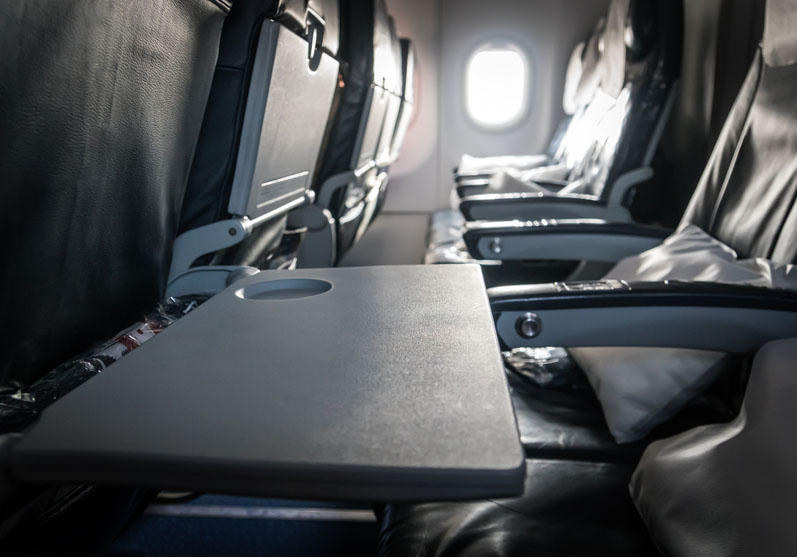
Best Position for quality sleep
It’s safe to say we have all tried to contort ourselves into some rather odd poses to find that perfect sleep position on a plane. There are, however, some positions that statistically are better for finding sleeping. The best position is leaning forward over your tray table, followed by sitting straight up with your head rested against your seat back. The worst positions are leaning to one side and surprisingly when you lie with your seat reclined fully back. 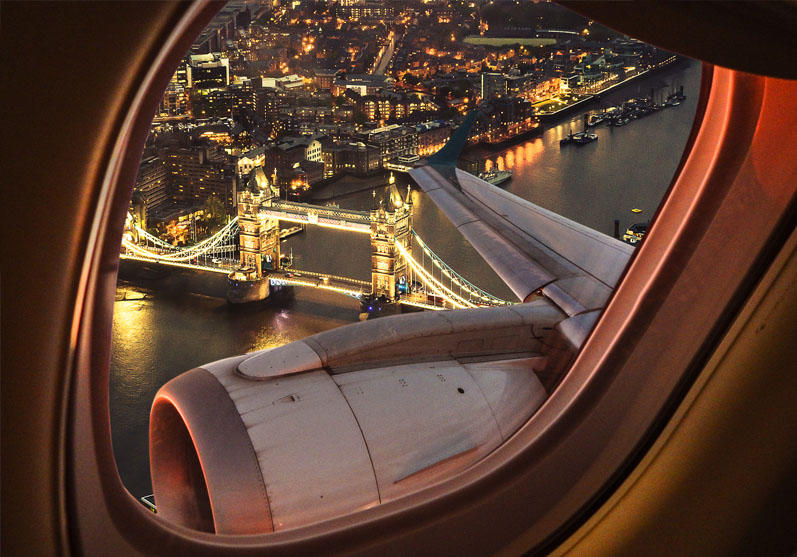
Best flight times for better sleep
The flight time you choose can also play a big factor in whether you get sleep or not. Red-eye flights or flights that take place during normal sleeping hours are the best for quality sleep. Your body is used to sleeping at these hours so you are more inclined to fall asleep even when on a plane. If overnight flights aren’t available, the next best period of the day is from noon to 5pm. This coincides with when many of us might consider taking a midday nap, so you be able to catch at least a bit of a power nap during the period. Layovers can greatly disrupt sleep patterns and should be avoided if possible. If a layover is unavoidable, we recommend making use of an airport lounge that offers comfortable beds to get a bit of a rest or booking a hotel room during longer layovers instead of struggling with sleeping on an airport floor in an effort to save money 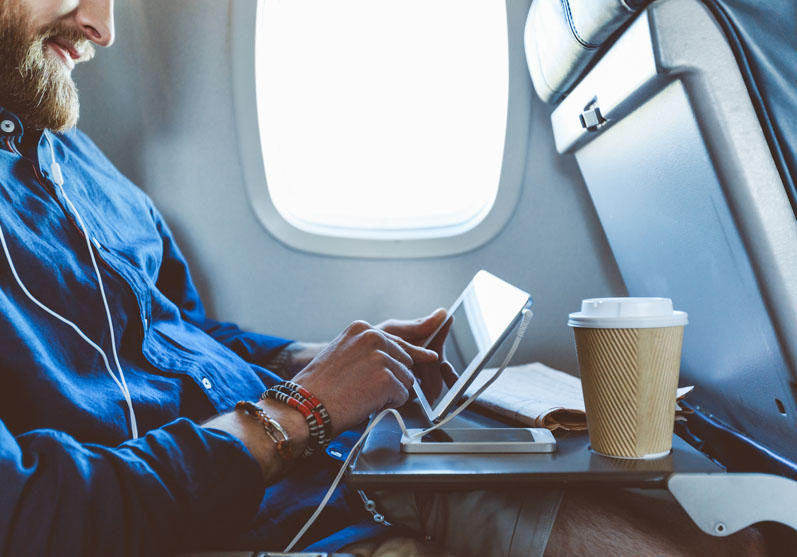
Avoiding sleep distractions
There are a number of distractions on planes that can prevent you from falling or staying asleep. Some of the worst sleep disrupters are food smells, turbulence, uncomfortable plane temperature, window light, and artificial light from device screens. Avoid sitting near areas where meals are prepared and maybe hold off trying to fall asleep until after the first main meal has been served and cleared. The effects of turbulence can be lessened by sitting towards the front of the plane and wearing a jacket or using a blanket can help to keep you warm so you are more apt to fall asleep. If flying during the day, be sure to close the aeroplane window or ask the person seated in the window if they wouldn’t mind closing it. Light forces our brains to think we should be awake, and this effect can even be attributed to artificial light cast from plane entertainment screens, phones, and laptops. Avoid using these electronics well before you plan to try and fall asleep. 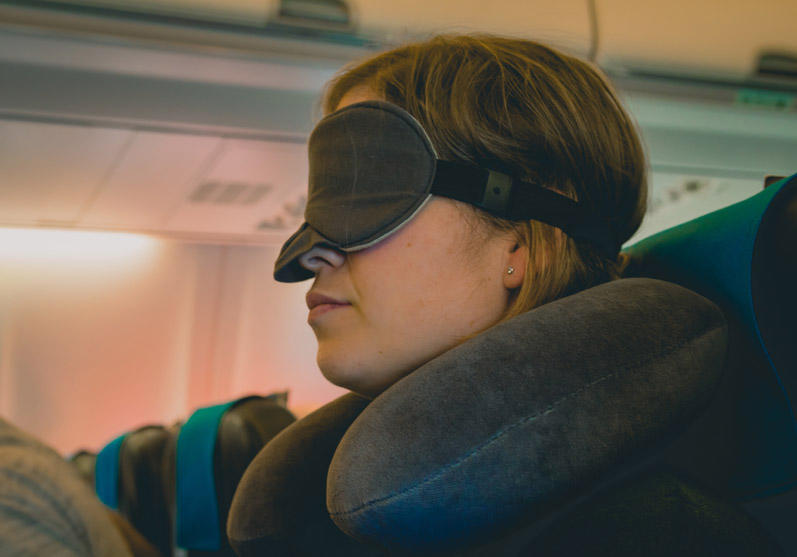
Best sleep aids for planes
While there is a limitless number of travel gadgets out there that promise better sleep on planes, the number one thing that passengers say promotes better sleep is simple earplugs. Ear plugs not only help with blocking out sound, but they also help regulate differences in air pressure which can be uncomfortable at times and prevent us from sleeping. Wearing an eye mask and using a comfortable neck pillow are the next top items that make sleeping easier while noise-cancelling headphones that play soothing or meditation music often help many travellers. 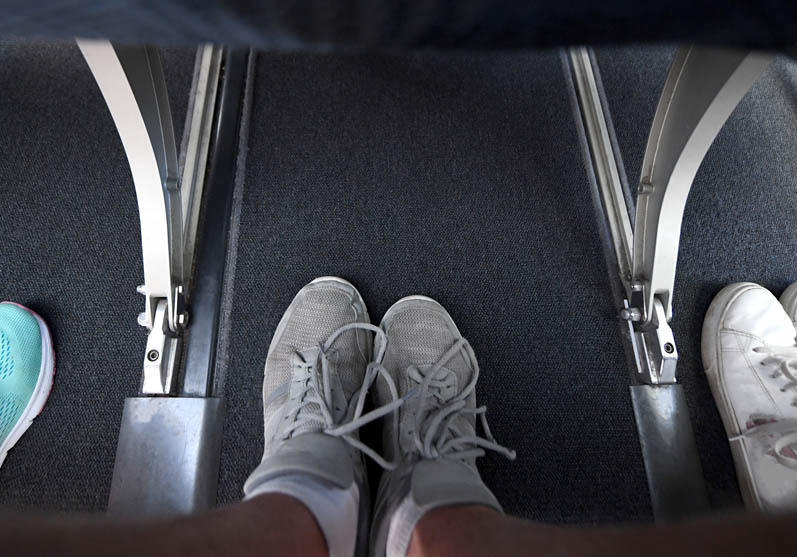
Dressing for sleep
It is also important to dress for sleep during a flight. While there are dress codes to abide by, meaning you not be able to slip into your normal PJs, you should at least aim to wear comfortable, loose-fitting clothing. Avoid wearing tight jeans or tight undergarments. You should also select a pair of shoes that will allow your feet to breathe a bit. If you’re prone to getting cold during flights, be sure to bring a sweater or sweatshirt. Being cold can inhibit good sleep. Wearing compression socks can help to improve the blood circulation in your legs and reduce swelling, helping you to avoid deep vein thrombosis. A New Zealand doctor from Worldwise Travel Clinics in New Zealand recommends putting on compression socks first thing when you get up in the morning to allow them to be most effective. 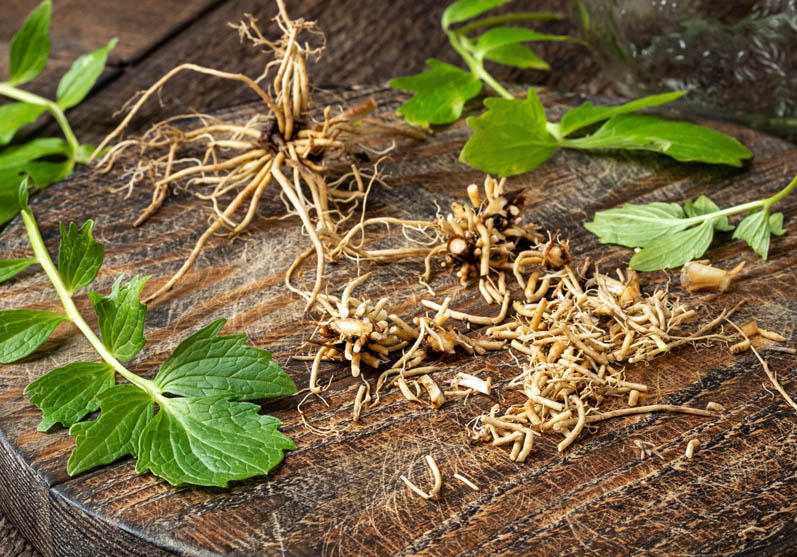
Herbal Supplements as sleeping aids
Herbal supplements typically come in tincture, extract, tea, or capsule forms. Herbal supplements are used to treat a wide range of ailments and many are designed to help promote a sense of calm and encourage sleep. Valerian root is one such herbal supplement that causes surprisingly strong sedation. It is often referred to as “nature’s Xanax” and can have you feeling drowsy in as little as 30 minutes. Native to Asia and Europe, valerian root is one of the most commonly used sleep-promoting herbal supplements. It is considered safe for adults when used sparingly. Other natural herbal supplements that have been used for centuries to help produce better sleep are lavender, passion flower, and chamomile. This means finding better sleep on a plane be as simple as bringing along a bag of your favourite chamomile tea. It is always a good idea to try natural remedies before opting for synthetic drugs. That being said, herbal supplements can also have unwanted side effects and safe dosage can vary based on your age, sex, whether you are pregnant or not, or if you have certain underlying health conditions. Always talk to your doctor or pharmacist before taking any medicine for sleep, including natural or herbal remedies. Governments don’t always regulate or monitor supplements in the same way they do prescription drugs. You can also call the NPS Medicines Line on 1300 MEDICINE (1300 633 424) for more information about your prescription, over-the-counter and complementary medicines (including herbal, ‘natural’, vitamins, and mineral supplements). 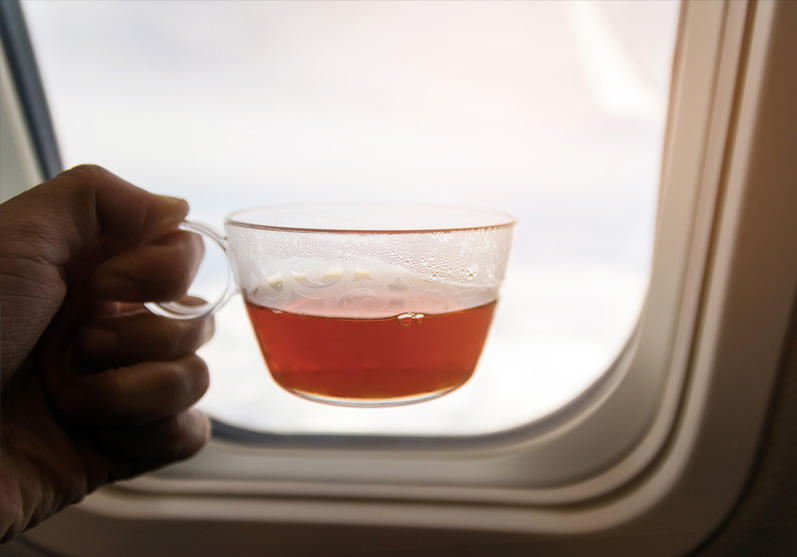
Best food and drink for better sleep
The best drink to consume while in the air is water. Air travel is dehydrating the body and not getting enough water can lead to a host of problems. Drinking alcohol can dehydrate you even more and have negative interactions when taken in tandem with sleeping pills or other travel medications. Consuming alcohol can also lead to certain travel insurance claims being denied if it is believed alcohol consumption led to an incident occurring for which you are claiming. Cherry juice can help to promote sleep, although it most likely won’t be an offering on most airlines. Thankfully you see similar results by taking peppermint or chamomile tea. As we covered earlier, warm milk drinks are also helpful for sleep as they contain the sleep-inducing amino acid tryptophan. Tryptophan increases your serotonin levels which in turn increases melatonin levels. We have already discussed how melatonin can help you to feel drowsy. Certain foods can also calm you down and generate a sleep-inducing hormonal response. Such foods include honey, nuts like almonds and walnuts, sunflower seeds, bananas, and yoghurt. Many of these foods contain natural sources of melatonin or tryptophan which can help to induce sleep. 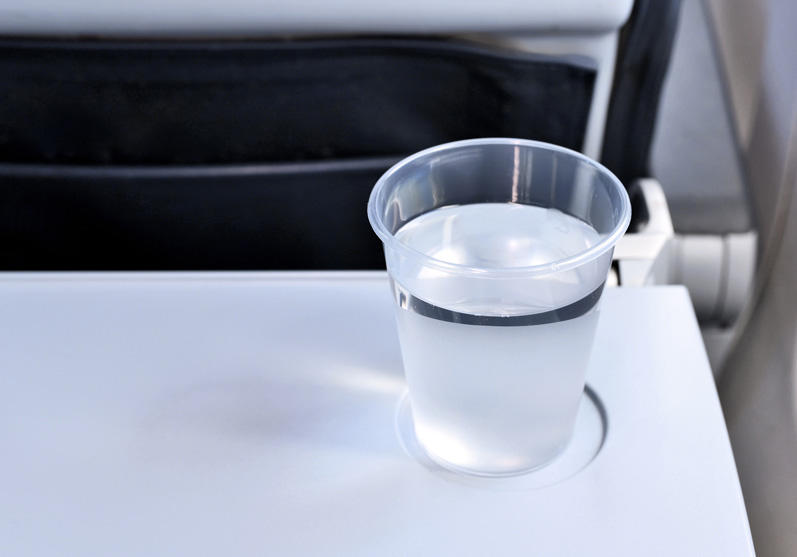
Get a natural night’s sleep
Here are some of the highlights we covered and additional ways you can help you or your child sleep well on your next flight:
- avoid alcohol and opt for drinking water
- select a window seat towards the front of the plane
- lean forward and rest on your tray table
- wear loose-fitting clothing
- avoid taking sleeping pills whenever possible
- try using safer natural herbal remedies as sleep aids after discussing with your doctor
- take a comfortable neck pillow, ear plugs, and eye mask
- bring your child’s favourite bedtime toy and books to read to them on the plane
- switch off your overhead lights, close the plane window, and avoid using device screens before sleeping.
- ensure you’re not too hot or cold (use a blanket or wear multiple layers of clothing you can remove as needed)
- have a warm milk drink (this help you fall asleep)
- if you can’t get to sleep after 20 minutes or so, try getting up and moving around the cabin before attempting to sleep again
- if you’re going on a long-haul journey, consider booking an overnight flight that coincides with your normal sleep routine
